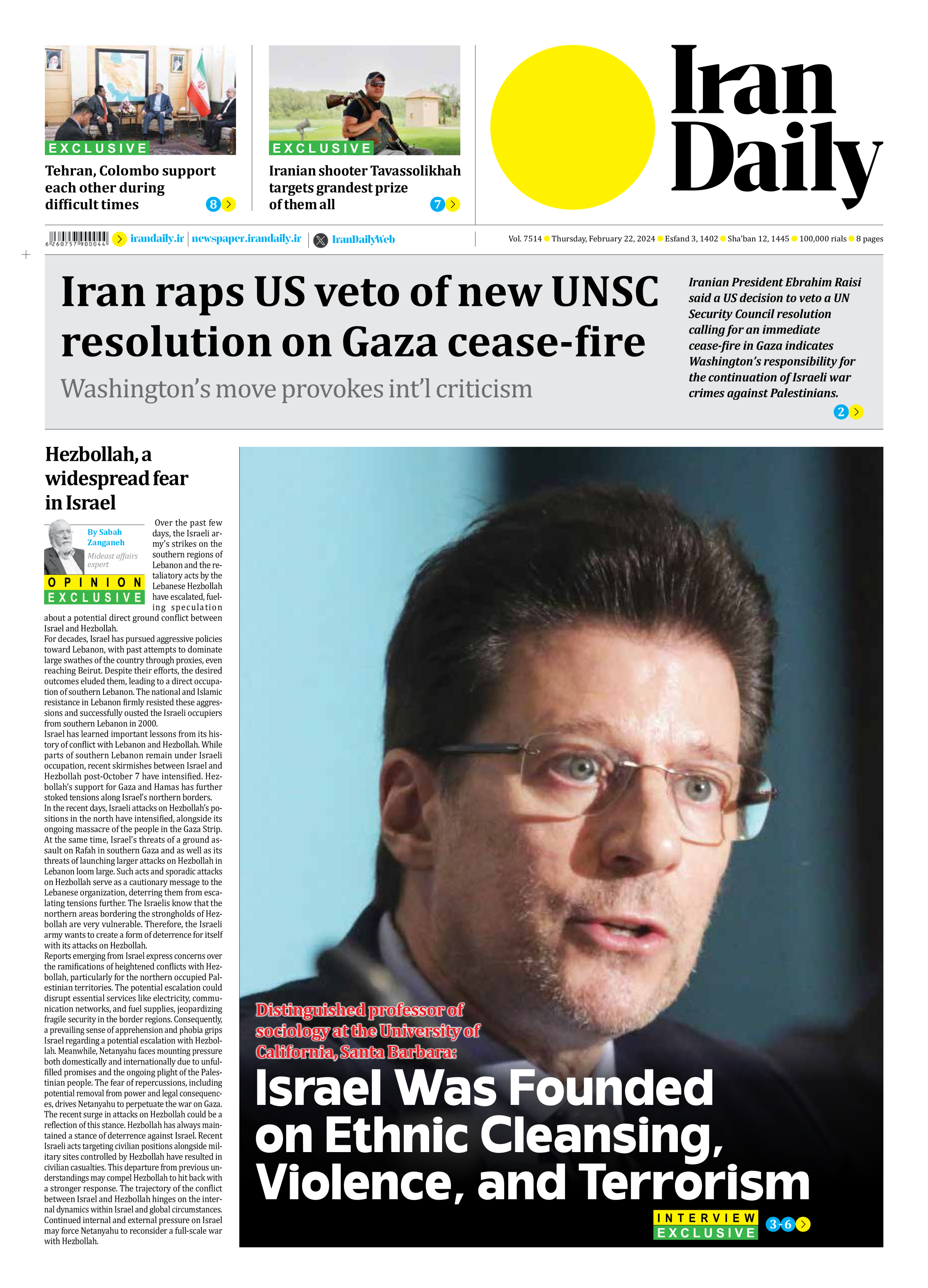
Hezbollah, a widespread fear in Israel
By Sabah Zanganeh
Mideast affairs expert
Over the past few days, the Israeli army’s strikes on the southern regions of Lebanon and the retaliatory acts by the Lebanese Hezbollah have escalated, fueling speculation about a potential direct ground conflict between Israel and Hezbollah.
For decades, Israel has pursued aggressive policies toward Lebanon, with past attempts to dominate large swathes of the country through proxies, even reaching Beirut. Despite their efforts, the desired outcomes eluded them, leading to a direct occupation of southern Lebanon. The national and Islamic resistance in Lebanon firmly resisted these aggressions and successfully ousted the Israeli occupiers from southern Lebanon in 2000.
Israel has learned important lessons from its history of conflict with Lebanon and Hezbollah. While parts of southern Lebanon remain under Israeli occupation, recent skirmishes between Israel and Hezbollah post-October 7 have intensified. Hezbollah’s support for Gaza and Hamas has further stoked tensions along Israel’s northern borders.
In the recent days, Israeli attacks on Hezbollah’s positions in the north have intensified, alongside its ongoing massacre of the people in the Gaza Strip. At the same time, Israel’s threats of a ground assault on Rafah in southern Gaza and as well as its threats of launching larger attacks on Hezbollah in Lebanon loom large. Such acts and sporadic attacks on Hezbollah serve as a cautionary message to the Lebanese organization, deterring them from escalating tensions further. The Israelis know that the northern areas bordering the strongholds of Hezbollah are very vulnerable. Therefore, the Israeli army wants to create a form of deterrence for itself with its attacks on Hezbollah.
Reports emerging from Israel express concerns over the ramifications of heightened conflicts with Hezbollah, particularly for the northern occupied Palestinian territories. The potential escalation could disrupt essential services like electricity, communication networks, and fuel supplies, jeopardizing fragile security in the border regions. Consequently, a prevailing sense of apprehension and phobia grips Israel regarding a potential escalation with Hezbollah. Meanwhile, Netanyahu faces mounting pressure both domestically and internationally due to unfulfilled promises and the ongoing plight of the Palestinian people. The fear of repercussions, including potential removal from power and legal consequences, drives Netanyahu to perpetuate the war on Gaza. The recent surge in attacks on Hezbollah could be a reflection of this stance. Hezbollah has always maintained a stance of deterrence against Israel. Recent Israeli acts targeting civilian positions alongside military sites controlled by Hezbollah have resulted in civilian casualties. This departure from previous understandings may compel Hezbollah to hit back with a stronger response. The trajectory of the conflict between Israel and Hezbollah hinges on the internal dynamics within Israel and global circumstances. Continued internal and external pressure on Israel may force Netanyahu to reconsider a full-scale war with Hezbollah.







